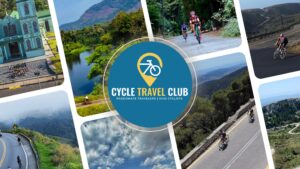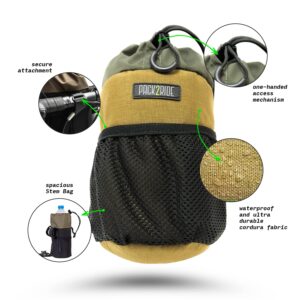Are you ready to revolutionize your cycling adventures? We’re thrilled...
Read MoreSwitzerland 🇨🇭
Switzerland offers cyclists a paradise of well-maintained routes through breathtaking landscapes, from the dramatic Rhine Route featuring Switzerland’s Grand Canyon (Ruinaulta Gorge) to the picturesque Lakes Route connecting ten stunning lakes, while the UNESCO-listed Lavaux vineyards and historic cities like Bern provide cultural richness along the way. The country’s comprehensive network of cycling-specific accommodations and facilities, including dedicated Bike Hotels equipped with repair services and secure storage, makes it easy to explore iconic destinations like Mount Pilatus, the Rhine Falls (Europe’s largest waterfall), and the serene Jura valleys.
At A Glance
★★★★★ RHINE ROUTE Following the majestic Rhine River from the Alps to Basel, this route offers an incredibly diverse journey through centuries-old landscapes and is part of the prestigious EuroVelo 15 network, making it one of Switzerland’s premier cycling experiences.
★★★★★ LAKES ROUTE Stretching over 500 kilometers past ten stunning lakes, this route showcases Switzerland’s most postcard-worthy scenery, including the iconic Lake Lucerne and the UNESCO-listed Lavaux vineyards, offering an perfect blend of natural beauty and cultural highlights.
★★★★★ BASEL Leading the pack with an impressive 16% of people traveling by bike, Basel stands out as one of Switzerland’s most cycle-friendly cities, featuring extensive infrastructure and a strong cycling culture.
★★★★☆ BERN The capital city boasts an impressive 11% cycling rate among its population, demonstrating strong cycling infrastructure and commitment to bike-friendly initiatives.
★★★★☆ ZURICH While facing some challenges with tram tracks and discontinuous cycle paths, Zurich has implemented an ambitious master plan to double cycling frequencies and has invested significantly in cycling infrastructure, including over 120 bike-sharing stations and 1400 bikes.
★★★★★ CANTON OF GRAUBÜNDEN Particularly notable for its challenging climbs and scenic passes, including the famous Bernina Pass and Splügen Pass, this canton is a paradise for serious cycling enthusiasts and mountain bikers.
★★★★☆ CANTON OF GENEVA Home to the popular Tour of the Canton of Geneva by Bike event, this region offers extensive cycling opportunities across numerous municipalities and features well-organized cycling infrastructure.
★★★★☆ PAYS-D’ENHAUT This region hosts the prestigious Summer Bike Marathon and offers excellent mountain biking terrain, making it a popular destination for both competitive and recreational cyclists.
Watch
Photos
Plan
Overall Best Time
The peak cycling season in Switzerland is from June to September, when weather conditions are most favorable and mountain passes are accessible. During this period, cyclists can enjoy:
- Long daylight hours
- Mild temperatures
- Open mountain passes
- Maximum availability of cycling-related services
- Access to organized tours and events
Regional Breakdown
1. The Swiss Alps
Best Time: Mid-June to Mid-September
- Characterized by dramatic mountain landscapes and passes exceeding 2000 meters
- Temperature ranges from 14°C in July at higher altitudes
- Considerations:
- Mountain passes typically open in late May/early June
- Afternoon thunderstorms are common in summer
- Services and accommodations are fully operational
- Popular routes like the Alpine Panorama Route are accessible
2. The Mittelland (Central Plateau)
Best Time: May to October
- Features rolling hills and traditional countryside
- Average summer temperatures around 19-20°C in July and August
- Considerations:
- More stable weather patterns than mountain regions
- Less affected by altitude-related closures
- ear-round cycling possible in lower areas
- Frequent rainfall in late spring and summer
3. The Jura Region
Best Time: Late May to Early October
- Known for remote fir-forested plateaux and quiet valleys
- Moderate temperatures with good cycling conditions
- Considerations:
- Less crowded than other regions
- Protected from extreme weather
- Excellent for peaceful countryside cycling
- 5,400 meters of elevation gain on main routes
4. The Valais
Best Time: June to September
- Features stunning mountain scenery and Rhone valley routes
- One of the driest regions in Switzerland
- Considerations:
- Unique microclimate with low precipitation
- Warm summer temperatures
- Excellent visibility and cycling conditions
- Popular wine route cycling options
5. The Graubünden
Best Time: Late June to Mid-September
- Offers glorious Alpine landscapes and challenging routes
- High-altitude terrain requires careful timing
- Considerations:
- Mountain passes may close earlier in autumn
- Summer offers best access to high-altitude routes
- Popular for mountain biking events
- Home to the SPAR Swiss Epic event
6. Lake Regions
Best Time: May to October
- Connects ten larger and smaller lakes with scenic routes
- Moderate temperatures due to lake influence
- Considerations:
- Less affected by altitude restrictions
- More stable temperatures year-round
- Popular for leisure cycling
- Extended season possible due to milder climate
Seasonal Considerations
Spring (March-May)
- Gradually warming temperatures
- Mountain passes begin opening
- Lower altitude routes accessible
- Some services may be limited early in the season
- Good for Mittelland and lake region cycling
Summer (June-August)
- Peak cycling season
- All services fully operational
- Maximum route accessibility
- Most cycling events scheduled
- Highest tourist numbers
- Afternoon thunderstorms possible
Autumn (September-November)
- Cooling temperatures
- Beautiful fall colors
- Decreasing tourist numbers
- Mountain passes begin closing
- Services start reducing in mountain areas
Winter (December-February)
- Limited to lower altitude regions
- Most mountain passes closed
- Reduced cycling services
- Cold temperatures prevail
- Better suited for winter sports
Service Availability
Bike rentals, repairs, and organized cycling tours are most available during the peak season (June to September), when many events also take place. Summer travelers should book bike-friendly accommodations early, as demand is high. While mountain regions may have limited services in the shoulder seasons, major cities and lower-altitude areas generally offer year-round support.
Before arranging your travel plans around a festival, ensure to confirm the festival dates on the official festival website or with a local tourist information office. For further details on these and other events, please visit the official tourism website for Switzerland.
Cycling Events
Date: June 15-22, 2025
Description: Switzerland’s premier professional cycling race covering eight stages across the country. Starting in Küssnacht and concluding with an individual time trial from Beckenried to Stockhütte. Features challenging mountain stages and time trials through scenic Swiss landscapes.
Cultural Festivals & Holidays
International Balloon Festival
Date: January 22-30, 2025
Description: Nine-day festival in Château-d’Oex featuring colorful hot air balloons from around the world. Spectacular aerial displays against the backdrop of Swiss Alps.
Festichoc
Date: April 2-3, 2025
Description: Switzerland’s premier chocolate festival in Versoix. Features chocolate sculptures, liquid chocolate tastings, and various chocolate-themed activities and demonstrations.
Good Friday
Date: April 18, 2025
Description: Religious holiday observed in most Swiss cantons except Ticino and Valais. Many businesses closed.
Ascension Day
Date: May 29, 2025
Description: National religious holiday observed throughout Switzerland. Expect reduced business hours and increased domestic tourism.
Pentecost Monday
Date: June 9, 2025
Description: National holiday observed in all cantons except Neuchâtel. Popular time for outdoor activities and local celebrations.
Montreux Jazz Festival
Date: July 1-16, 2025
Description: World-renowned jazz festival featuring international artists. Concerts held in various venues along Lake Geneva’s shoreline.
Paléo Festival
Date: July 19-24, 2025
Description: One of Switzerland’s largest open-air music festivals in Nyon. Features around 250 concerts over six days with diverse musical styles.
Swiss National Day
Date: August 1, 2025
Description: National celebration featuring fireworks, parades, and traditional festivities across the country. Expect street closures and special events in all major cities.
Assumption of Mary
Date: August 15, 2025
Description: Religious holiday celebrated in 12 Swiss cantons. Traditional processions and celebrations in Catholic regions.
All Saints’ Day
Date: November 1, 2025
Description: Religious observance in 15 cantons. Traditional ceremonies and remembrance events throughout the country.
Planning Notes
- Event dates may be subject to change
- Advance booking recommended for major festivals
- Consider holiday impacts on travel and accommodation availability
- Check local tourism offices for updated information closer to event dates
General Cultural Norms & Etiquette
The Swiss society values precision, punctuality, and politeness in all aspects of life. These values are deeply embedded in their daily interactions and social fabric.
Key Points:
- Always be punctual for appointments and meetings
- Greet people with a firm handshake and maintain eye contact
- Use formal titles (Herr/Frau) unless invited to use first names
- Keep your voice down in public spaces
- Maintain neat and clean appearance
Cycling-Specific Considerations
Switzerland has a strong cycling culture with well-established rules and customs. Cyclists are respected road users but are expected to follow specific protocols.
Safety & Rules:
- Obey all traffic signals and signs
- Use designated bike lanes when available
- Equip your bike with front and rear lights
- Yield to pedestrians in shared spaces
- Keep right in roundabouts
Trail Etiquette:
- Stick to marked cycling routes
- Respect hiking-only trails
- Give way to uphill cyclists
- Use bell when approaching others
- Park bikes in designated areas
Religious & Spiritual Considerations
Switzerland is predominantly Christian but maintains strong religious freedom and tolerance.
Important Points:
- Many businesses close on Sundays and religious holidays
- Respect quiet hours around churches and religious sites
- Dress modestly when visiting religious buildings
- Be mindful of local customs during religious festivals
Food & Dining Customs
Swiss dining culture follows specific patterns and customs that reflect their organized approach to daily life.
Meal Times:
- Breakfast (Zmorge): 6:30-7:30 AM
- Mid-morning break (Znüni): Around 9:00 AM
- Lunch (Zmittag): 12:00-1:00 PM
- Afternoon snack (Zvieri): Around 4:00 PM
- Dinner (Znacht): 6:00-7:00 PM
Dining Etiquette:
- Wait for the host to begin eating
- Keep hands visible on the table
- Finish everything on your plate
- Cross utensils when finished
- Tipping is usually included in bills
Regional Variations
Switzerland’s cultural landscape varies significantly across its four linguistic regions.
German Region (62.3%):
- More formal and reserved
- Direct communication style
- Strong emphasis on punctuality
French Region (22.8%):
- More relaxed atmosphere
- Emphasis on social graces
- Later dining times
Italian Region (8%):
- Warmer, more expressive culture
- Longer lunch breaks
- Strong café culture
Romansh Region (< 1%):
- Unique cultural traditions
- Strong community focus
- Preservation of local customs
General Travel Tips
Switzerland’s efficient and organized society makes it an ideal destination for cycling travelers who respect local customs.
Cultural Awareness:
- Learn basic greetings in the local language of each region
- Respect quiet hours (10 PM – 7 AM)
- Keep your bike and equipment clean and well-maintained
- Carry cash as some places don’t accept cards
- Respect environmental regulations
Interaction with Locals:
- Swiss people are helpful but reserved
- Don’t take photos of people without permission
- Avoid loud conversations in public transport
- Thank people who assist you
- Respect personal space
Remember that Swiss culture values order, cleanliness, and respect for rules. By following these guidelines, you’ll have a more enriching cycling experience while navigating Switzerland’s diverse cultural landscape.
Air Travel
Switzerland’s compact size means domestic flights are limited, but its international airports serve as efficient gateways to the country. The Swiss are known for their precision in air travel operations, reflecting their commitment to punctuality.
Zurich Airport (ZRH)
- Switzerland’s largest aviation hub
- Direct rail connection to city center (10 minutes)
- Home to Swiss International Air Lines
- Website: www.zurich-airport.com
Geneva Airport (GVA)
- Gateway to French-speaking Switzerland
- Free public transport ticket upon arrival
- 6 minutes to city center by train
- Website: www.gva.ch
Rail System
The Swiss Federal Railways (SBB) is the pride of Swiss public transport, known for its legendary punctuality and comprehensive coverage. Trains are spotlessly clean and offer panoramic windows for scenic journeys.
Key Features:
- Hourly connections between major cities
- Digital tickets via SBB Mobile app
- Integrated with local transport
- Website: www.sbb.ch
Popular Scenic Routes:
- Glacier Express: 8-hour panoramic journey
- Bernina Express: UNESCO World Heritage route
- GoldenPass Line: Links three lakes
Bus Networks
The iconic yellow PostBuses are a symbol of Swiss public transport, reaching the most remote valleys and mountain villages. They perfectly complement the rail system, ensuring comprehensive coverage across the country.
PostBus Features:
- Connects to rural communities
- Synchronized with train schedules
- Real-time tracking available
- Website: www.postauto.ch
Lake Transportation
Swiss lakes offer both practical transport and tourist experiences. Modern boats and historic paddle steamers provide regular services across major lakes, combining transport with sightseeing opportunities.
Major Lake Services:
- Lake Geneva: Cross-border connections
- Lake Lucerne: Historic paddle steamers
- Lake Zurich: Regular commuter services
- Website: www.cgn.ch (Lake Geneva)
Mountain Transport
Switzerland’s mountain transport systems are engineering marvels, providing access to some of Europe’s highest peaks. These include funiculars, cable cars, and cogwheel railways.
Notable Systems:
- Jungfraujoch: Europe’s highest railway station
- Pilatus: World’s steepest cogwheel railway
- Zermatt: Car-free resort access
Travel Passes
The Swiss Travel Pass is your all-in-one ticket to Switzerland’s transport network. It offers remarkable value for visitors planning to explore multiple regions.
Benefits:
- Unlimited travel on most transport
- Free museum entry
- Mountain excursion discounts
- Website: www.swiss-pass.ch
Important Info (MUST READ)
Switzerland participates in the Schengen Agreement, which means its visa policies align with other Schengen Area countries. The country maintains strict but straightforward visa requirements that vary based on nationality and purpose of visit.
US Citizens
American travelers enjoy relatively simple entry requirements to Switzerland. Here’s what you need to know:
Short-Term Stays (Up to 90 Days)
- No visa required for tourist or business visits
- Valid passport (minimum 3 months beyond planned departure)
- Proof of sufficient funds
- Return/onward ticket
- Travel insurance recommended
Important Note: The 90-day limit applies within any 180-day period across all Schengen countries, not just Switzerland.
Non-US Citizens
Requirements vary significantly based on nationality. Here’s a breakdown by region:
EU/EEA Citizens
- No visa required
- Valid national ID card or passport
- Registration required for stays over 90 days
Visa-Required Countries
Most citizens from these regions need a Schengen visa:
- Most African nations
- Many Asian countries (including China, India, Russia)
- Most Middle Eastern countries
- Some Latin American countries
General Visa Requirements
When applying for a Swiss visa, you’ll need to provide:
Essential Documents:
- Completed visa application form
- Valid passport (minimum 3 months beyond stay)
- Two recent passport photos
- Travel insurance (minimum €30,000 coverage)
- Proof of accommodation
- Flight itinerary
- Bank statements
Additional Requirements:
- Visa fee payment
- Proof of employment/student status
- Invitation letter (if applicable)
- Travel itinerary
- Schengen visa application appointment
Special Visa Categories
Student Visas
- Acceptance letter from Swiss institution
- Proof of financial means
- Accommodation arrangements
- Health insurance coverage
Work Visas
- Job offer from Swiss employer
- Work permit approval
- Professional qualifications
- Proof of accommodation
Residence Permits
- Purpose of stay documentation
- Financial stability proof
- Housing arrangements
- Integration requirements
Important Links
Official Resources:
- Swiss Embassy in US: www.eda.admin.ch/washington
- Swiss State Secretariat for Migration: www.sem.admin.ch
- Visa Application Portal: www.swiss-visa.ch
Consulate Locations:
- New York: 633 Third Avenue, 30th floor
- Chicago: 875 North Michigan Avenue #3880
- San Francisco: Pier 17, Suite 600
Application Tips
Timeline Considerations:
- Apply up to 6 months before travel
- Process takes 15 working days on average
- Allow extra time for peak seasons
- Emergency visas possible in special cases
Common Mistakes to Avoid:
- Incomplete application forms
- Insufficient financial proof
- Missing travel insurance
- Passport validity issues
- Late applications
Remember that visa requirements can change, so it’s always best to verify current requirements through official channels before planning your trip. The Swiss authorities are known for their efficiency but also their strictness in following procedures.
Mobile Network Coverage & Providers
Switzerland boasts one of Europe’s most advanced mobile networks, with extensive coverage even in mountainous regions. The country’s commitment to connectivity ensures cyclists can stay connected on most routes.
Major Providers:
- Swisscom (Market leader)
- 99% population coverage
- Best 5G browsing experience
- Highest rated network quality
- Sunrise
- Comprehensive coverage
- Competitive pricing
- Strong urban presence
- Salt
- 99.9% territory coverage
- Focus on 3G, 4G, and 5G
- Phased out 2G network
Tourist SIM Card Options
Physical SIM Cards
Switzerland offers various prepaid options for tourists, available through multiple channels:
Purchase Locations:
- Airport kiosks
- Provider retail stores
- Electronics shops
- Convenience stores
Activation Process:
- Passport/ID required
- Immediate activation available
- Registration necessary
eSIM Options
eSIMs are becoming increasingly popular for their convenience and instant activation capabilities.
Benefits:
- No physical card needed
- Pre-purchase before travel
- Keep home number active
- Multiple plans possible
How to Get Started:
- Check device compatibility
- Purchase online
- Scan QR code
- Follow activation instructions:
- Check device compatibility
- Purchase online
- Scan QR code
- Follow activation instructions
WiFi Availability
Urban Areas
Swiss cities offer extensive WiFi coverage through various networks:
City Centers:
- Free municipal networks
- Shopping center WiFi
- Restaurant/café hotspots
- Public building access
Transport Hubs
Railway Stations:
- “SBB-FREE” network at 80+ stations
- Free WiFi on long-distance trains
- “FreeSurf” app for seamless connection
PostBus Services:
- Free WiFi on many routes
- One-time registration required
- Growing coverage network
Cyclist-Specific Considerations
Mountain Areas
When cycling in mountainous regions, be aware of these connectivity factors:
Coverage Tips:
- Download offline maps
- Save emergency numbers
- Check coverage maps before remote rides
- Consider portable power banks
Route Planning
Connectivity Preparation:
- Research dead zones
- Note WiFi hotspots along route
- Download route maps offline
- Share itinerary with others
Safety Measures
Emergency Preparedness:
- Save emergency contacts
- Download Swiss emergency apps
- Keep phone charged
- Consider backup communication device
Practical Tips
Before Your Trip:
- Check device compatibility
- Research best provider for your route
- Download essential apps
- Consider eSIM pre-purchase
During Your Stay:
- Keep devices charged
- Use offline features when possible
- Connect to free WiFi when available
- Monitor data usage
Remember that while Switzerland has excellent overall connectivity, some remote cycling routes may have limited coverage. Planning ahead and having offline alternatives will ensure a smooth cycling experience throughout your journey.
Navigation & Route Planning
SwitzerlandMobility
The official Swiss route planning app, essential for cyclists exploring Switzerland’s extensive network of trails and paths.
- Features: Detailed maps, route planning, accommodation info
- Android: https://play.google.com/store/apps/details?id=ch.schweizmobil&hl=en
- iOS: https://apps.apple.com/ph/app/switzerlandmobility/id527194959
Google Maps
Provides comprehensive coverage of Switzerland with real-time traffic updates and cycling routes.
- Features: Navigation, offline maps, points of interest
- Android: https://play.google.com/store/apps/details?id=com.google.android.apps.maps&hl=en
- iOS: https://apps.apple.com/us/app/google-maps/id585027354
Transportation
SBB Mobile
The official Swiss Federal Railways app, crucial for combining cycling with public transport.
- Features: Train schedules, tickets, real-time updates
- Android: Search “SBB Mobile” on Google Play
- Android: https://play.google.com/store/apps/details?id=ch.sbb.mobile.android.b2c
- iOS: https://apps.apple.com/us/app/sbb-mobile/id294855237
Citymapper
Excellent for urban navigation in major Swiss cities.
- Features: Multi-modal transport options, real-time updates
- Android: https://play.google.com/store/apps/details?id=com.citymapper.app.release&hl=en
- iOS: https://apps.apple.com/us/app/citymapper-all-live-transit/id469463298
Safety & Emergency
Travel Admin
Official app by Swiss Federal Department of Foreign Affairs for travel safety.
- Features: Emergency contacts, travel advisories, safety tips
- Android: https://play.google.com/store/apps/details?id=ch.erni.itinerisapp&hl=en
- iOS: https://apps.apple.com/us/app/travel-admin-reisehinweise/id1468260065
Alertswiss
Official emergency notification app for Switzerland.
- Features: Real-time alerts, emergency information, safety instructions
- Android: https://play.google.com/store/apps/details?id=ch.admin.babs.alertswiss&hl=en
- iOS: https://apps.apple.com/ch/app/alertswiss/id957339177
Weather
MeteoSwiss
The official Swiss weather service app, crucial for cycling planning.
- Features: Detailed forecasts, radar maps, weather warnings
- Android: https://play.google.com/store/apps/details?id=ch.admin.meteoswiss&hl=en
- iOS: https://apps.apple.com/us/app/meteoswiss/id589772015
Cycling Community
Strava
Popular among cyclists for tracking rides and discovering routes.
- Features: Route tracking, community features, performance analysis
- Android: https://play.google.com/store/apps/details?id=com.strava&hl=en
- iOS: https://apps.apple.com/us/app/strava-run-bike-hike/id426826309
Pro Tips:
- Download apps before traveling
- Enable offline features where available
- Check app compatibility with your device
- Update apps regularly for best performance
Electrical System Basics
Switzerland’s electrical system differs from many other countries, making it essential to understand the basics before plugging in your devices. The system is known for its unique Type J outlets, which you won’t commonly find elsewhere in Europe.
Key Specifications:
- Voltage: 230V
- Frequency: 50Hz
- Primary Outlet: Type J (three round pins)
- Secondary: Type C (two round pins)

Device Compatibility
Most modern travel electronics are designed to work worldwide, making them compatible with Swiss power systems. However, it’s crucial to check your device’s voltage specifications before plugging them in.
Dual Voltage Devices (Safe to Use):
- Smartphones and tablets
- Laptops and cameras
- E-bike chargers
- Modern GPS devices
Check Before Using:
- Hair dryers
- Electric shavers
- Older electronics
- Battery chargers
Power Solutions
When cycling through Switzerland, having reliable power solutions is essential for keeping your devices charged. The country’s efficient electrical infrastructure means you’ll find charging opportunities in most locations.
Must-Have Items:
- Universal travel adapter with Type J compatibility
- 20,000mAh power bank (minimum)
- Weather-resistant device cases
- Multiple charging cables
Cycling-Specific Power Tips
Long-distance cycling requires strategic power management to ensure your devices stay charged throughout your journey. Planning your charging stops is as important as planning your route.
Power Management:
- Charge devices fully overnight
- Use power-saving modes while riding
- Keep power bank easily accessible
- Consider handlebar-mounted solar charger
Safety Recommendations
Swiss electrical systems are highly reliable, but proper precautions ensure your devices stay safe. Always use high-quality adapters and keep your electronics protected from the elements.
Essential Safety Points:
- Use surge-protected adapters
- Keep devices dry and temperature-controlled
- Avoid charging in wet conditions
- Store power banks in padded containers
Currency Overview
The Swiss Franc (CHF) is Switzerland’s official currency, known for its stability and strength in the global market. As a cycling traveler, understanding the currency will help you manage your expenses effectively during your journey.
Current Denominations:
- Coins: 5, 10, 20, 50 centimes and 1, 2, 5 francs

- Banknotes: 10, 20, 50, 100, 200, and 1000 francs

Currency Exchange Options
Switzerland offers various ways to exchange currency, with some options being more advantageous than others for cyclists.
Best Options:
- SBB Railway Stations
- 115 Travel Centres across Switzerland
- Competitive rates
- Convenient locations for cyclists
- Exchange over 100 currencies
Other Options:
- Local banks
- Exchange offices in city centers
- ATMs (with international cards)
- Major hotels (less favorable rates)
Best Practices
When managing your money in Switzerland, following these practices will help you get the best value:
Exchange Tips:
- Compare rates before exchanging
- Avoid airport exchange offices
- Use bank ATMs when possible
- Choose local currency transactions
- Keep exchange receipts
Digital Solutions:
- Use mobile banking apps
- Consider online currency services
- Keep digital copies of transactions
- Enable travel notifications on cards
Safety Considerations for Cyclists
Switzerland is generally safe, but taking precautions with your money while cycling is essential.
Security Measures:
- Use hidden money belts
- Split cash between locations
- Keep small amounts in accessible pockets
- Store larger amounts in secure bike bags
- Carry emergency cash separately
Smart Carrying:
- Waterproof storage solutions
- Anti-theft bike bags
- Multiple storage locations
- Emergency fund backup
Regional Considerations
Switzerland’s diverse regions may have different payment preferences and availability of exchange services.
Urban Areas:
- More exchange options
- Better rates available
- Card payments widely accepted
- Multiple ATM options
Rural/Mountain Areas:
- Fewer exchange facilities
- Cash more commonly needed
- Plan exchanges in advance
- Carry sufficient cash reserves
Recommendations for Cycling Travelers
Before Your Trip:
Exchange some money in advance and research current exchange rates to avoid surprises. Inform your bank about your travel plans to prevent card issues, and consider downloading a currency app for quick conversions on the go.
During Your Journey:
Carry only a small amount of cash for daily use and rely on cards for larger purchases. Keep an eye on exchange rates and always maintain an emergency fund for unexpected expenses.
While Switzerland is increasingly card-friendly, having some cash is essential, especially in rural areas or small establishments along cycling routes. Plan your currency needs based on your specific route and keep both cash and cards secure during your cycling adventure.
Food Safety Landscape
Switzerland maintains exceptionally high standards for food safety, with comprehensive regulations that match or exceed those of other developed nations. The country’s food safety system is monitored by the Federal Food Safety and Veterinary Office (FSVO), ensuring consistent quality across all regions.
Key Statistics:
- Over 2,500 food suppliers under regulation
- Regular monitoring of establishments
- Strict compliance with EU guidelines
- Low incidence of food-borne illness
Food Safety in Different Settings
Restaurants & Cafes
Swiss dining establishments adhere to strict hygiene protocols and regular inspections. The implementation of HACCP systems ensures food safety at every step.
What to Expect:
- Clean dining environments
- Professional food handling
- Temperature-controlled storage
- Regular staff training
Markets & Street Food
While street food is less common in Switzerland compared to other countries, when available, it’s generally safe to consume due to strict vendor regulations.
Safety Measures:
- Vendor licensing requirements
- Regular health inspections
- Clean preparation areas
- Proper storage facilities
Water Quality & Safety
Switzerland boasts some of the cleanest drinking water in the world. The country’s water quality is a point of national pride and is strictly monitored.
Tap Water
The tap water in Switzerland is exceptionally safe and of high quality. In fact, it’s often comparable to or better than bottled water.
Key Features:
- 80% sourced from underground springs
- Minimal treatment required
- Regular quality testing
- Rich in natural minerals
Mountain Water Sources
The Swiss Alps provide much of the country’s water, contributing to its exceptional purity.
Natural Sources:
- Alpine springs
- Glacier-fed streams
- Protected watersheds
- Regular monitoring
Safety Tips & Precautions
While Switzerland maintains high food and water safety standards, travelers should still follow basic precautions.
General Food Safety
- Wash hands before meals
- Eat at established restaurants
- Check restaurant hygiene ratings
- Store perishables properly
Water Consumption
- Tap water is safe to drink
- Public fountains are generally potable
- Carry reusable water bottles
- Check signs for non-potable sources
Special Considerations
In 2023, Switzerland reported:
- 40 foodborne illness outbreaks
- 260 people affected
- 40 hospitalizations
Pro Tips for Travelers
Food Safety:
- Restaurant meals are generally safe
- Street food from licensed vendors is reliable
- Markets maintain high hygiene standards
- Most food-related illness cases are minor
Water Safety:
- No need for bottled water
- Public fountains are safe unless marked
- Ice in drinks is safe
- Tap water in hotels is potable
Check out the latest Travel Advisory to Switzerland from the US Dept of State. Contacts from all US Embassies in Switzerland are listed on the website. Use the Smart Traveler Enrollment Program (STEP) to inform them of your travels.
Read the Travel Health Notices & suggested vaccinations from the CDC
For the latest updates and resources, visit the U.S. Embassy in COUNTRY’s official website: U.S. Embassy & Consulates in Switzerland
General Insurance Requirements
Switzerland requires comprehensive insurance coverage, especially for Schengen visa holders. With high healthcare costs and valuable cycling equipment, proper insurance is essential.
Basic Requirements:
- Minimum coverage: EUR 30,000
- Emergency medical coverage
- Repatriation coverage
- Valid throughout Schengen area
Specialized Cycling Insurance Options
Velosurance
Velosurance offers specialized coverage designed specifically for cyclists, with comprehensive protection for both you and your bicycle.
Key Features:
- Theft and damage protection
- Liability coverage
- Medical payments
- Roadside assistance
- Customizable coverage limits
Website: Velosurance
Sunday’s Insurance
Sunday’s Insurance provides excellent bicycle-specific coverage with international options perfect for Swiss adventures.
Coverage Highlights:
- Worldwide coverage up to 90 days
- Theft and damage protection
- Custom parts coverage
- Racing event coverage
- Emergency medical expenses up to $1,000
- Transportation reimbursement up to $75
- Rental reimbursement up to $300
Website: Sunday’s Insurance
World Nomads
World Nomads offers comprehensive travel insurance that includes cycling activities and equipment protection.
Plan Options:
- Standard Plan ($549/180 days)
- Explorer Plan ($788/180 days)
- Coverage for 250+ activities
- Equipment protection up to $3,000
- 24/7 emergency assistance
Website: World Nomads
Additional Swiss Insurance Options
AXA Seguros
A major provider offering competitive bicycle insurance with comprehensive coverage options.
Features:
- Competitive pricing
- Theft and damage coverage
- Accident protection
- Multiple bike coverage options
Website: AXA Switzerland
SportsCover Direct
Underwritten by AXA XL, offering specialized cycling travel insurance.
Highlights:
- Adventure sports coverage
- Competition coverage
- Equipment protection
- International assistance
Website: SportsCover Direct
Key Considerations for Cyclists
Coverage Verification
Before purchasing, verify:
- International coverage validity
- Activity-specific coverage
- Equipment value limits
- Medical coverage amounts
Equipment Protection
Essential aspects to consider:
- Bicycle replacement value
- Custom components coverage
- Theft protection terms
- Damage assessment process
Pro Tips
Before Purchase:
- Compare provider benefits
- Read exclusion clauses carefully
- Check deductible amounts
- Verify claim processes
Documentation Needs:
- Bicycle serial numbers
- Equipment photos
- Purchase receipts
- Value assessments
Road Safety Essentials
Switzerland offers some of the best cycling infrastructure in Europe, with well-maintained roads and clear signage throughout the country. However, cyclists must still follow strict traffic rules to ensure their safety.
Must-Know Rules:
- Ride on the right side
- Use hand signals for turns
- Follow traffic lights
- Yield to pedestrians
- Children under 6 need supervision
Required Safety Gear
Swiss law requires specific equipment for all cyclists. Having the right gear not only keeps you legal but also ensures your visibility and safety.
Basic Requirements:
- Two working brakes
- Front white light
- Rear red light
- Reflectors (front and back)
- Bell or horn
- Helmet (mandatory for e-bikes)
Health & Medical Safety
The Swiss healthcare system is excellent but can be expensive. Being prepared for medical emergencies is crucial for a worry-free cycling adventure.
Essential Preparations:
- Carry insurance cards
- Save emergency number (112)
- Pack basic first aid
- Stay hydrated
- Know nearby medical facilities
Weather & Seasonal Safety
Swiss weather can change quickly, especially in mountainous regions. Understanding seasonal conditions helps you prepare appropriately.
Weather Guidelines:
- Check forecasts daily
- Carry rain gear
- Use sunscreen
- Pack layers
- Watch for sudden storms
Cultural Awareness
The Swiss value order and punctuality. Understanding local customs will help you navigate social situations smoothly.
Key Cultural Points:
- Respect quiet hours
- Greet fellow cyclists
- Follow local rules strictly
- Be punctual
- Keep noise levels down
Crime Prevention
While Switzerland is generally safe, taking basic precautions protects you and your equipment.
Security Basics:
- Use quality bike locks
- Park in designated areas
- Keep valuables secure
- Document bike details
- Stay aware in cities
Emergency Preparedness
Being prepared for emergencies gives you peace of mind during your cycling adventure.
Emergency Kit:
- Phone and charger
- Basic repair tools
- First aid supplies
- Emergency cash
- Important contacts
Remember that cycling in Switzerland can be an incredible experience when you’re properly prepared. Following these guidelines helps ensure your safety while enjoying the country’s beautiful landscapes.
Resources
Essential Words & Phrases
Switzerland has four official languages, but here are the most crucial phrases in the three main languages you’re likely to encounter:
Greetings & Basics (German/French/Italian):
- Hello: Grüezi/Bonjour/Ciao
- Thank you: Danke/Merci/Grazie
- Excuse me: Exgüüsi/Excusez-moi/Scusi
- Goodbye: Widerluege or Chus/Au revoir/Arrivederci
- Yes/No: Ja-Nein/Oui-Non/Si-No
Common Travel Phrases:
- Do you speak English?: Sprechen Sie Englisch?/Parlez-vous anglais?/Parla inglese?
- Where is…?: Wo ist…?/Où est…?/Dove è…?
- How much?: Wie viel?/Combien?/Quanto?
- Please: Bitte/S’il vous plaît/Per favore
Mobile Apps for Learning
Top Recommended Apps
- Perfect for learning Swiss dialect
- Interactive audio content
- Practical vocabulary focus
- Structured lessons
- Speech recognition
- Cultural insights
- Swiss German dialects
- Regional variations
- Local pronunciations
Online Resources & Tools
Free Learning Platforms
- Duolingo (for standard languages)
- Memrise (vocabulary building)
- SRF (Swiss media content)
Language Exchange
- Tandem
- HelloTalk
- Language exchange meetups
30-Day Learning Plan
Week 1: Foundations
- Learn basic greetings
- Master numbers 1-20
- Practice pronunciation
- Download language apps
Week 2: Essential Phrases
- Transportation vocabulary
- Restaurant phrases
- Shopping terms
- Basic directions
Week 3: Practice
- Watch Swiss media
- Use language apps daily
- Practice with natives online
- Learn local expressions
Week 4: Immersion
- Change phone language
- Listen to Swiss radio
- Watch Swiss YouTube
- Practice daily conversations
Pro Tips for Quick Learning
Daily Habits:
- 30 minutes dedicated practice
- Listen while commuting
- Label items at home
- Use flashcards
Immersion Techniques:
- Watch Swiss news
- Follow Swiss social media
- Listen to Swiss music
- Practice with locals online
Remember that while Switzerland is multilingual, focusing on the language of your destination region is most practical. Most Swiss people speak English, but making an effort to use local languages is always appreciated.
Travel Influencers
1. Senna Relax
- Instagram: @sennarelax
- Description: Mega influencer with 1.3M followers showcasing stunning Swiss landscapes and global adventures through professional photography.
2. Dario (Swiss Wow)
- Instagram: @swisswoow
- Description: Swiss native with 588K+ followers specializing in daily Swiss excursions and hidden adventure spots across the country.
3. Gelato Travel
- Instagram: @gelatotravel
- Description: Travel enthusiast with 415K+ followers revealing Switzerland’s hidden gems and awe-inspiring locations.
4. Michaela Scalisi
- Instagram: @michaelacarrot
- Description: Adventure specialist with 388K+ followers known for wild ice skating and comprehensive Swiss travel guides.
5. Martina Bisaz
- Instagram: @kitkat_ch
- Description: Swiss photographer with 271K+ followers capturing breathtaking Swiss landscapes and mountain adventures.
6. Tim Ulrich
- Instagram: @timulrich.pix
- Description: Luxury travel and landscape photographer with 221K+ followers specializing in Swiss alpine photography.
Cycling Influencers
1. Nino Schurter
- Instagram: @nschurter
- Description: A 10-time World Champion and Olympic gold medalist in mountain biking, Nino is a Swiss cycling icon. He shares content about his races, training, and adventures, often showcasing Switzerland’s stunning trails. His posts blend professional achievements with a love for cycling and the outdoors.
2. Mathias Flückiger
- Instagram: @mathflueck
- Youtube: rnracingteam
- Description: A professional mountain biker with an Olympic silver medal (Tokyo 2020) and multiple World Championship medals, Mathias is based in Switzerland. He posts about his races, training routines, and partnerships with brands like Thömus Maxon, offering insights into competitive cycling.
3. Silvan Dillier
- Instagram: @silvandillier
- Website: https://www.silvandillier.ch/
- Description: A passionate cyclist based in Switzerland, Kristin shares her cycling adventures, outdoor experiences, and insights into cycling culture. Her content often features Switzerland’s picturesque landscapes and promotes an active lifestyle.
4. Simon Infanger
- Instagram: @cyclingsimon
- Website: https://www.simon-infanger.ch/
- Description: A Swiss-based influencer focused on cycling, sports, and outdoor adventures. Cyclingsimon shares content about cycling experiences, gear, and Switzerland’s cycling-friendly environment, with a modest but engaged following.
Cycling and Travel Blogs/Websites
1. Newly Swissed
- Instagram: @newlyswissed
- Website: https://www.newlyswissed.com/
- Description: An online magazine founded in 2010, covering Swiss culture, design, events, and tourism. It features cycling-related content, such as guides to scenic bike routes and outdoor adventures in Switzerland.
2. Bike Switzerland Blog
- Website: https://swissbiking.blog/
- Description: A blog focused on cycling adventures, particularly with e-bikes, across Switzerland. It details specific routes like Zernez to Scuol and Maloja to Martina, with vivid descriptions of Engadin villages and Tarasp Castle. The blog also shares stats from SchweizMobil.ch for route planning.
Cycling-Specific Resources
1. MySwitzerland
- Instagram: @myswitzerland
- Website: https://www.myswitzerland.com/
- Description: The official website of Switzerland Tourism, offering extensive information on cycling routes, destinations, accommodations, and events. It includes curated bike tours, such as the Tour de Suisse Explorer Challenge, and details on the Swiss Travel Pass for unlimited public transport.
2. Swiss National Park
- Instagram: @schweizernationalpark
- Website: https://nationalpark.ch/
- Description: The official site for Switzerland’s oldest national park and UNESCO Biosphere Reserve, offering maps and guides for cycling and hiking trails. It’s a key resource for cyclists exploring natural heritage in the Engadin region.
3. SBB (Swiss Federal Railways)
- Website: https://www.sbb.ch
- Description: The most visited travel and tourism website in Switzerland (4.83M monthly visits in Feb 2025), providing guidelines for taking bikes on trains, maps of bike-friendly routes, and bike rental options.
Bicycles and E-Bikes
1. BMC Switzerland
- Instagram: @ride_bmc
- Website: https://bmc-switzerland.com/
- Description: Renowned for premium road, mountain, and e-bikes, BMC creates high-performance bicycles with Swiss precision engineering.
2. Scott Sports
- Instagram: @scottsports
- Website: https://www.scott-sports.com/
- Description: A leader in road, mountain, and e-bikes, Scott offers innovative designs with eco-conscious materials for all cyclists.
3. Scor
- Instagram: @scor_mtb
- Website: https://scor-mtb.com/
- Description: A BMC sub-brand, Scor produces fun, trail-focused mountain bikes with Swiss engineering expertise.
4. Aarios AG
- Website: https://www.aarios.ch/startseite.html
- Description: Handcrafts durable steel-frame racing and touring bikes, offering customizable, eco-friendly designs.
5. Flyer
- Instagram: @flyerbikes
- Website: https://www.flyer-bikes.com/
- Description: Pioneers in e-bikes, Flyer produces reliable city, mountain, and touring models with Swiss craftsmanship.
6. Koba Cycles
- Website: https://koba.ch/
- Description: Focuses on sustainable city, touring, and e-bikes using recycled materials for eco-friendly cycling.
Cycling Apparel and Accessories
1. Assos of Switzerland
- Instagram: @assosofswitzerland
- Website: https://www.assos.com/
- Description: Produces premium cycling apparel, known for innovative fabrics and ergonomic designs for performance cyclists.
2. Veloplus
- Instagram: @veloplus
- Website: https://www.veloplus.ch/
- Description: A Swiss retailer offering own-brand bikes, accessories, and apparel designed for safety and comfort.
3. Velofactory
- Website: https://www.velofactory.ch/
- Description: Provides high-quality bike accessories like lights, locks, and trailers for safer cycling experiences.
Travel-Related Services
Switzerland Mobility
- Instagram: @schweizmobil
- Website: https://schweizmobil.ch/
- Description: Provides interactive maps and route planners for over 12,000 km of signposted cycling paths.
MySwitzerland
- Instagram: @myswitzerland
- Website: https://www.myswitzerland.com/
- Description: Official tourism platform offering cycling route guides, travel passes, and destination tips for cyclists.
Hop on your bike and join the adventure with Cycle Travel Club's thrilling hosted tours throughout the year!
Cycle The Myth: Peloponnese, Greece
From$2,600Availability : July 30 - Aug 15, 2025Delhi, Manali to Leh, IndiaExperience the bustling chaos and historic majesty of Delhi’s ancient streets before embarking on one of the world’s most epicView TourGolden Triangle + Himalayan Cycling Adventure
From$2,600Availability : July 30 - Aug 15, 2025Delhi, Manali to Leh, IndiaExperience the bustling chaos and historic majesty of Delhi’s ancient streets before embarking on one of the world’s most epicView TourKerala Spice Trail Cycling Tour
From$1,750Availability : January 15 - 25, 2026Kerala, IndiaKerala, aka “God’s Own Country”, is known for stunning landscapes, serene backwaters, vibrant culture, & diverse cycling routes through tropicalView Tour
Pedal Deeper into Adventure
Read more about epic Destinations here....
🚲 Win Big with Pack2Ride: Your Ultimate Bikepacking Adventure Awaits!
Hey adventure seekers! Ready to level up your bikepacking game?...
Read MoreRide into Bliss: March Raffle Extravaganza for Transformative Travel Mindset Coaching!
Ready to take your cycling adventures to the next level?...
Read More





